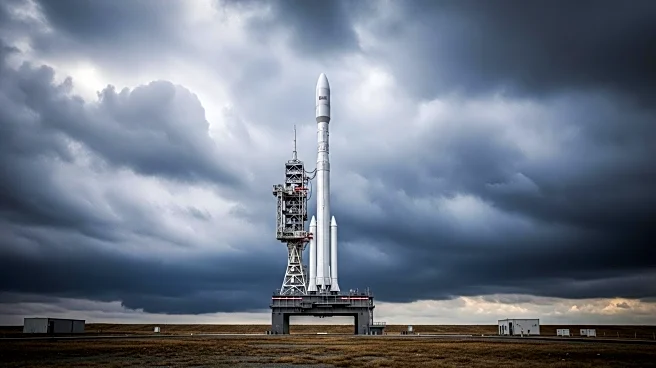What's Happening?
NordSpace, an aerospace startup based in Markham, Ontario, has delayed the first suborbital flight of its Taiga rocket due to an unexpected trigger of the rocket's ignition safety system and adverse weather conditions. The launch was set to be the first-ever commercial rocket launch from Canadian soil, postponed just 58 seconds before takeoff. CEO Rahul Goel expressed optimism for another attempt in September. The Taiga rocket, powered by NordSpace's 3D-printed liquid rocket Hadfield Engine, was to be launched from the under-construction Atlantic Spaceport Complex in Newfoundland. NordSpace aims to develop space launch vehicles, spaceports, and satellites entirely in Canada.
Why It's Important?
The delay of NordSpace's launch highlights the challenges faced by new entrants in the aerospace industry, particularly in ensuring safety and reliability. Successful commercial rocket launches from Canadian soil could enhance Canada's space mission capacity and foster innovation in the aerospace sector. This development is significant for Canada's ambitions in space exploration and technology, potentially positioning the country as a competitive player in the global space industry. The postponement underscores the importance of rigorous safety protocols and the impact of environmental factors on launch schedules.
What's Next?
NordSpace plans to attempt the launch again in September, pending favorable weather conditions and resolution of the ignition safety system issue. The company will continue to refine its technology and safety measures to ensure a successful launch. This event may prompt increased scrutiny and regulatory oversight of commercial space launches in Canada, influencing future policies and industry standards. NordSpace's progress will be closely watched by stakeholders in the aerospace sector, as successful launches could attract investment and partnerships.
Beyond the Headlines
The delay in NordSpace's launch reflects broader challenges in the aerospace industry, including the need for robust safety systems and the impact of weather on launch schedules. It also highlights the growing interest in developing domestic space capabilities, which could lead to increased collaboration between government and private sectors in Canada. The emphasis on 3D-printed rocket technology represents a shift towards more sustainable and cost-effective manufacturing processes in the aerospace industry.








